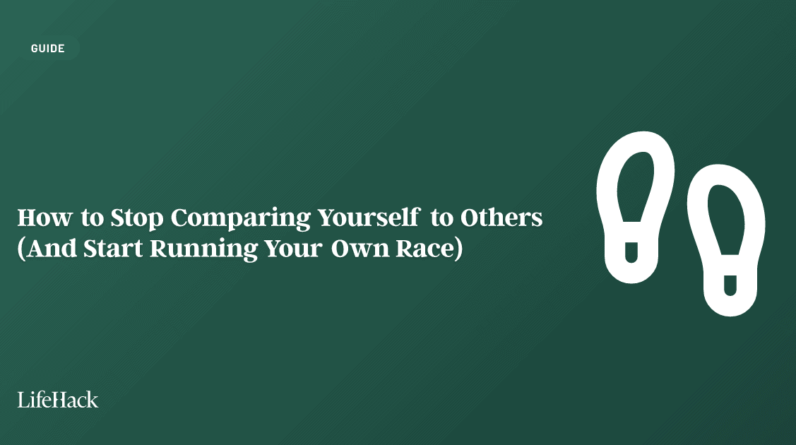
Love and marriage are complex dynamics that require attention and effort to maintain a healthy relationship. Within the context of any relationship, five key areas play a crucial role in the success of a marriage.
This includes:
- communication
- honesty
- loyalty
- respect
- and trust
However, among these areas, trust stands out as the number one key for several reasons.
Trust forms the foundation of any strong and lasting relationship. It is the belief that you can rely on your partner’s honesty, integrity, and faithfulness. But without trust, love and marriage can become fragile and vulnerable to misunderstandings, conflicts, and ultimately dissolution.
Understanding the Significance of Trust in a Marriage
Trust is the foundation upon which a strong and healthy marriage is built. It is the cornerstone that holds a couple together through thick and thin, and without it, a relationship can quickly crumble.
Trust in marriage goes beyond simply believing that your partner will be faithful. It encompasses a deep sense of reliability and confidence in each other’s words, actions, and intentions. When trust exists within a marriage, it creates an environment of safety and security where both partners feel comfortable being vulnerable and open with one another.
The importance of trust cannot be overstated. It forms the basis for effective communication, mutual respect, and emotional intimacy. Trust allows couples to rely on each other during challenging times, knowing that they have each other’s best interests at heart.
Building trust takes time and effort from both partners. It requires consistent honesty, reliability, and transparency in all aspects of the relationship. Trust can be nurtured through open communication channels where concerns are addressed promptly and honestly.
Additionally, trustworthiness plays a vital role in maintaining a successful marriage. Being trustworthy means keeping promises made to your partner, being dependable when needed most, and consistently demonstrating integrity in your actions.
It’s The Foundation of Emotional Intimacy and Connection
Building a strong foundation of emotional intimacy and connection is crucial for a healthy and fulfilling marriage. Emotional intimacy refers to the deep sense of closeness, trust, and vulnerability that exists between partners. It is the ability to share one’s innermost thoughts, feelings, and desires with their spouse without fear of judgment or rejection.
To establish emotional intimacy, it is essential for both partners to actively work on building trust. Trusting your partner involves having confidence in their reliability, honesty, and faithfulness. This trust forms the basis for open communication and allows couples to feel secure in sharing their deepest emotions.
The connection in marriage goes beyond physical attraction or shared interests. It involves a deep understanding and acceptance of each other’s needs, values, and aspirations. Couples who are emotionally connected can empathize with one another and offer support during difficult times.
One vital thing about nurturing emotional intimacy is that it requires an ongoing effort from both partners. It involves active listening, expressing empathy, validating each other’s feelings, and being responsive to each other’s needs.
By creating an environment where both partners feel safe to be vulnerable without fear of criticism or rejection, they can strengthen their emotional bond over time.
Ultimately, a foundation of emotional intimacy and connection provides the framework for a loving and enduring relationship. It allows couples to navigate challenges together with resilience while engaging in a deep sense of love, understanding, and companionship.
Trust Promotes Open Communication and Vulnerability For Love And Marriage
Open communication and vulnerability are key components of a healthy and thriving marriage. These elements create a strong foundation for trust, understanding, and emotional intimacy between partners.
Open communication is the practice of sharing feelings, concerns, and thoughts with your partner honestly and transparently. It involves actively listening to your spouse’s perspective without judgment or defensiveness. By creating an environment where both partners feel safe to express themselves, open communication allows for deeper understanding and connection.
Vulnerability in marriage refers to the willingness to be emotionally exposed and share one’s true self with their partner. It involves letting go of defenses and allowing oneself to be seen authentically. When couples embrace vulnerability, they create a space where they can fully understand each other’s needs, fears, dreams, and insecurities.
Sharing feelings and concerns openly promotes a sense of emotional closeness between partners. It allows for problem-solving together as a team rather than individually navigating challenges. Honesty and transparency create an atmosphere of trust within the relationship.
In addition to building intimacy, open communication, and vulnerability also help resolve conflicts effectively. By openly discussing disagreements or issues that arise within the marriage, they can work towards finding mutually satisfactory solutions.
Furthermore, embracing vulnerability enables partners to provide support during difficult times. When one person feels comfortable expressing their struggles or vulnerabilities without fear of judgment or rejection from their spouse, it creates a sense of safety within the relationship.
In summary, promoting open communication and vulnerability in marriage is essential for cultivating a strong bond between partners. Creating an environment where both individuals feel safe expressing themselves honestly without fear of judgment or rejection from their spouse leads to increased emotional intimacy, problem-solving capabilities as a team during the conflict resolution process, and overall marital satisfaction.
Creates Mutual Respect and Support
In a healthy and fulfilling marriage, mutual respect and support are key ingredients that contribute to a strong foundation. Respect in marriage involves valuing each other’s opinions, feelings, and boundaries. It means treating your partner with kindness, empathy, and understanding.
Supporting each other’s dreams and goals is an essential aspect of creating mutual respect. When couples encourage and actively participate in the pursuit of their partner’s aspirations, it creates a sense of validation and appreciation. This support can manifest in various ways, such as providing emotional encouragement, offering practical assistance, or even just being a listening ear.
Having each other’s back is another crucial element of mutual respect in marriage. It means standing up for one another during challenging times or when facing external criticism or judgment. Couples who have each other’s back create a safe space where they feel protected and valued.
Teamwork plays a significant role in creating mutual respect and support within a marriage. By working together towards common goals, they can build trust and develop effective communication skills. They learn to navigate conflicts constructively while maintaining respect for one another’s perspectives.
Overall, fostering mutual respect and support in marriage requires ongoing effort from both partners. By prioritizing these values, they can cultivate a loving relationship built on trust, understanding, and shared aspirations.
Enhances Love And Marriage Security and Stability
In a relationship, feeling secure and stable is essential for emotional well-being and overall satisfaction. It encompasses both emotional and physical safety, creating an environment where partners can trust and rely on each other.
Relationship security refers to the confidence that one’s partner will be there for them emotionally, providing support, understanding, and empathy. It involves open communication, mutual respect, and a sense of being valued in the relationship.
When a person feels secure in their partnership, they are more likely to express their thoughts and emotions honestly without fear of judgment or rejection.
Stability in marriage or long-term relationships is crucial for building a strong foundation. It involves consistency in commitment, trustworthiness, and dependability. Couples who feel secure in their relationship have a sense of predictability and reliability from their partner. This stability allows them to navigate challenges together with confidence.
Feeling safe with your partner physically is another important aspect of relationship security. It involves knowing that you can rely on your partner to provide physical protection when needed. This includes feeling safe from any form of abuse or harm.
Enhancing relationship security and stability requires effort from both partners. Building trust through open communication, practicing empathy, respecting boundaries, and addressing conflicts constructively are crucial steps toward creating a secure foundation in any relationship.
Creates a Positive Environment for Love and Romance
Creating a positive environment for love and romance is essential in any relationship, particularly in marriage. Love and marriage thrive when there is a strong foundation of trust, open communication, and mutual respect.
Romance and passion are vital components that keep the spark alive between partners. It involves expressing affection, engaging in romantic gestures, and nurturing the emotional connection.
The trust serves as the bedrock of love, providing security and confidence within the relationship. When partners trust each other completely, they can freely express their emotions, share vulnerabilities, and build a deeper bond.
To create a positive environment for love and marriage, couples can prioritize quality time together, engage in activities that create intimacy, communicate openly about their needs and desires, and show appreciation for one another regularly. These efforts contribute to strengthening the emotional connection between partners and keeping the flame of love burning bright.
Conclusion: Nurturing Trust for a Strong Love And Marriage
Nurturing trust in love and marriage is essential for building a strong and lasting relationship. Trust forms the foundation of any successful marriage, fostering open communication, intimacy, and emotional security between partners.
By understanding the significance of trust and implementing strategies to cultivate it, anyone can create a loving and secure bond that stands the test of time.







